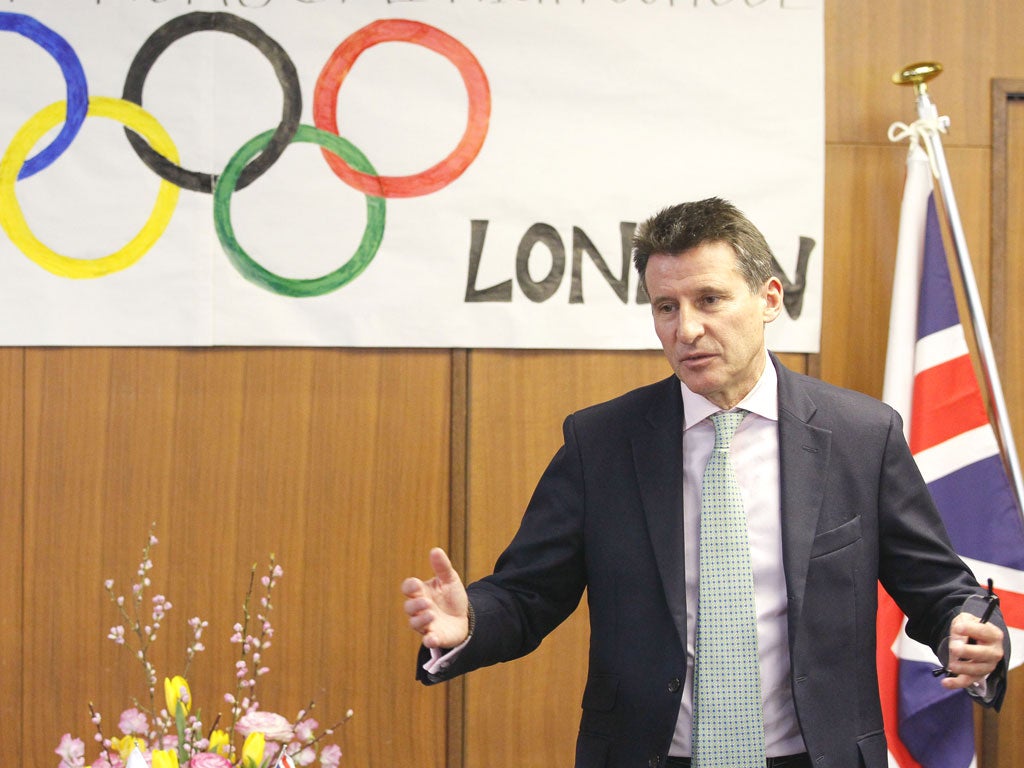Lord Coe has been accused of “obsessive secrecy” and of running a “closed oligopoly” amid a mounting row over the lack of transparency in the ticketing process for London 2012, which has been described “the Lord Coe Olympics”.
Paul Deighton, chief executive of the London 2012 Organising Committee (Locog), faced questions alongside him as Baroness Doocey, the Chair of the London Assembly’s Economy, Culture and Sport Committee described it as “the least transparent organisation I have ever come across.”
In their final appearance before the committee at City Hall in London, Baroness Doocey demanded information on how many of the seven million Games tickets already sold fall below the £50 price point. Lord Coe said he would not answer until the remaining four million tickets were sold, saying it would be “partial information” and that his staff “will not provide a running commentary”.
It was an explanation deemed unsatisfactory. “You will not tell us what you know, you are saying everything is changing and is too complicated to understand,” said Conservative member Andrew Boff. “Now what you are saying is that we are too thick to understand the job you are doing and you will not give us the information. That is an insult.”
There are concerns that the reason for his reticence to release the information, which Baroness Doocey claimed would be available “at the touch of a button”, is that it will only be after the remaining tickets are sold that organisers will meet their targets for affordable ones..
The final four million include 1.5m football tournament tickets and 1.5m Paralympic tickets – but relatively few to showpiece events such as swimming, cycling and athletics. This may mean that the great portion of these tickets have been neither affordable nor publicly available.
Mr Deighton, formerly a partner at Goldman Sachs, confirmed that the ticketing promises could not be fulfilled until after the Games were complete. “I can’t prove to you we are making our commitments because it depends on what we sell in the entirety, but I can confirm there will be 2.5 million tickets at £20 or under,” he said.
He also confirmed that, of the stadium’s 80,000 seats, only around 29,000 would be made available to the British public for the 100m final. Only 58,500 are for sale at all, he explained, with large “seat kills” dramatically reducing the number available.
4,500 will be blocked by big screens, 10,000 will be taken up by media, 2,000 by athletes, 2,000 by officials, and a further 3,000 may have views obstructed by camera positions and so may not be sold.
He added that 50 per cent of sellable tickets, “at the narrowest estimate”, would be made available to the British public – less than half the stadium’s capacity.
He also stressed that a significant number of the remaining seats would “find their way into British hands”, via overseas ticket sellers, sponsors and allocations for local sports clubs.
John Biggs, the Labour Assembly member for City and East, expressed disappointment that the stadium had been built in such a way as to so significantly limit the number of seats available, and that tickets for the “blazerati” or via “a Cadburys Crème egg competition” should not be considered tickets for the general public. “There is a feeling among the public that it is a closed games,” he said. “People will be steaming past them in these games lanes to go to events that they don’t have tickets to.”
Lord Coe was also forced to defend McDonald’s chicken procurement policy, after revealing that only 10% will come from British farms. McDonald’s, one of the International Olympic Committees top tier sponsors, will be opening its biggest and busiest branch anywhere in the world on the Olympics site.
“McDonald's is spending £300 million procuring food from British farming,” he said. 17,500 British farms are providing an overall 55 per cent of the Olympic food.
“It is all UK beef, all UK pork, the eggs are free range and all of the milk is organic and all of the fish, what there is of it, is MSC (Marine Stewardship Council) certified.”
He also faced questions about a potential conflict of interest with regard to future use of the stadium, in his roles as chair of the Locog board and an International Association of Athletics Federation council member. The stadium has already been awarded the 2017 Athletics World Championships, and that retractable seating was not considered in the stadium’s original design has made the venue less appealing to football clubs. “I don't remember promising (in Signapore in 2005) a legacy for a generation of Spurs season ticket holders,” he said, noticeably frustrated.
Dow Chemical’s controversial sponsorship of the wrap around the Olympic stadium was also raised, to which Lord Coe testily replied: “I have no doubt that we are surrounded here in this building by Dow Chemical products, as was the case with the Commonwealth Games stadium in Delhi.”
Subscribe to Independent Premium to bookmark this article
Want to bookmark your favourite articles and stories to read or reference later? Start your Independent Premium subscription today.


Join our commenting forum
Join thought-provoking conversations, follow other Independent readers and see their replies